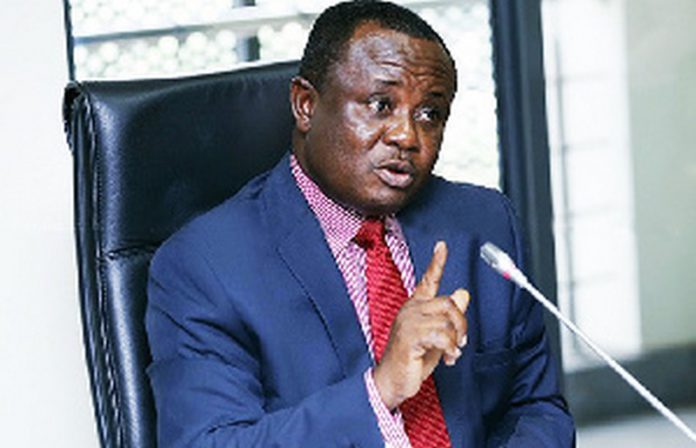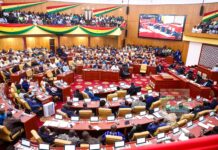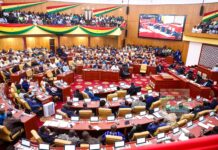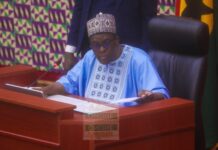
First Deputy Speaker, Joseph Osei-Owusu, has welcomed the ruling by the Supreme Court that a Deputy Speaker of Parliament can be counted during the formation of a quorum for parliamentary decision-making and participate in voting while presiding.
Addressing the media in Parliament on Wednesday, he said the decision by the Supreme Court is ‘refreshing’ and affirms his earlier decision to join his colleagues on the Majority side to approve the 2022 Budget while presiding over proceedings of the House.
According to him, the decision by the Supreme Court would help guide their practice as Members of Parliament and advance Ghana’s democracy.
“As at now, at the end of it all, we are being guided. What we have not done before, where the way was not clearly marked out by our own standing orders, have now been cleared by the Supreme Court,” he stated.
Reacting to the Court’s decision for portions of the Standing Orders of Parliament to be struck out, he said he is not surprised by the decision.
“I am very glad that indeed that clarity has been given… the text of the Constitution was very clear and even the Article 109(3) was clear that you shall not retain the original vote whereas in the case of the Speaker it said you shall not have either original or casting vote when it came to the Deputy Speaker, it said you shall not retain the original vote. The natural consequence was that you would have a casting vote. This decision of the Supreme Court appears to affirm that position that I strongly agreed with,” he noted.
The Supreme Court presided over by Justice Jones Dotse, on Wednesday affirmed the approval of the 2022 Budget without NDC MPs’ participation.
Private Legal Practitioner Justice Abdulai, in a case against the Attorney-General, asked the Supreme Court to interpret Articles 102 and 104 of the 1992 Constitution and declare the action of Mr. Osei Owusu to be counted as a Member of Parliament while acting as Speaker, as unconstitutional.
He also wanted the Supreme Court to declare the whole proceedings in Parliament on November 30, 2021, which led to the passage of the 2022 Budget, as unconstitutional. He contended that the Deputy Speaker should not have counted himself as an MP when he presided over proceedings.
On the other hand, the A-G believes that the quorum under Article 104 (1), which deals with the determination of matters through voting in Parliament, requires at least half of all MPs, and such a quorum is not the same as the one in Article 102.
Mr. Dame argued that unlike Article 102, which precludes a “person presiding” from being part of the quorum, Article 104 (2) precludes explicitly, “The Speaker”.
The A-G, therefore, holds the position that only the person elected as “The Speaker” of Parliament is barred from forming part of the quorum under Article 104 when presiding, and not the Deputy Speakers who preside over proceedings in his absence.
The Apex Court, comprising Justices; Jones Dotse, Nene Amegatcher, Prof Ashie Kotey, Mariama Owusu, Lovelace Johnson, Clemence Honyenuga, and Emmanuel Yonny Kulendi affirmed the arguments of the Attorney-General.
The court also struck out portions of the standing orders of Parliament which reads, “A Deputy Speaker or any other member presiding shall not retain his original vote while presiding.”






